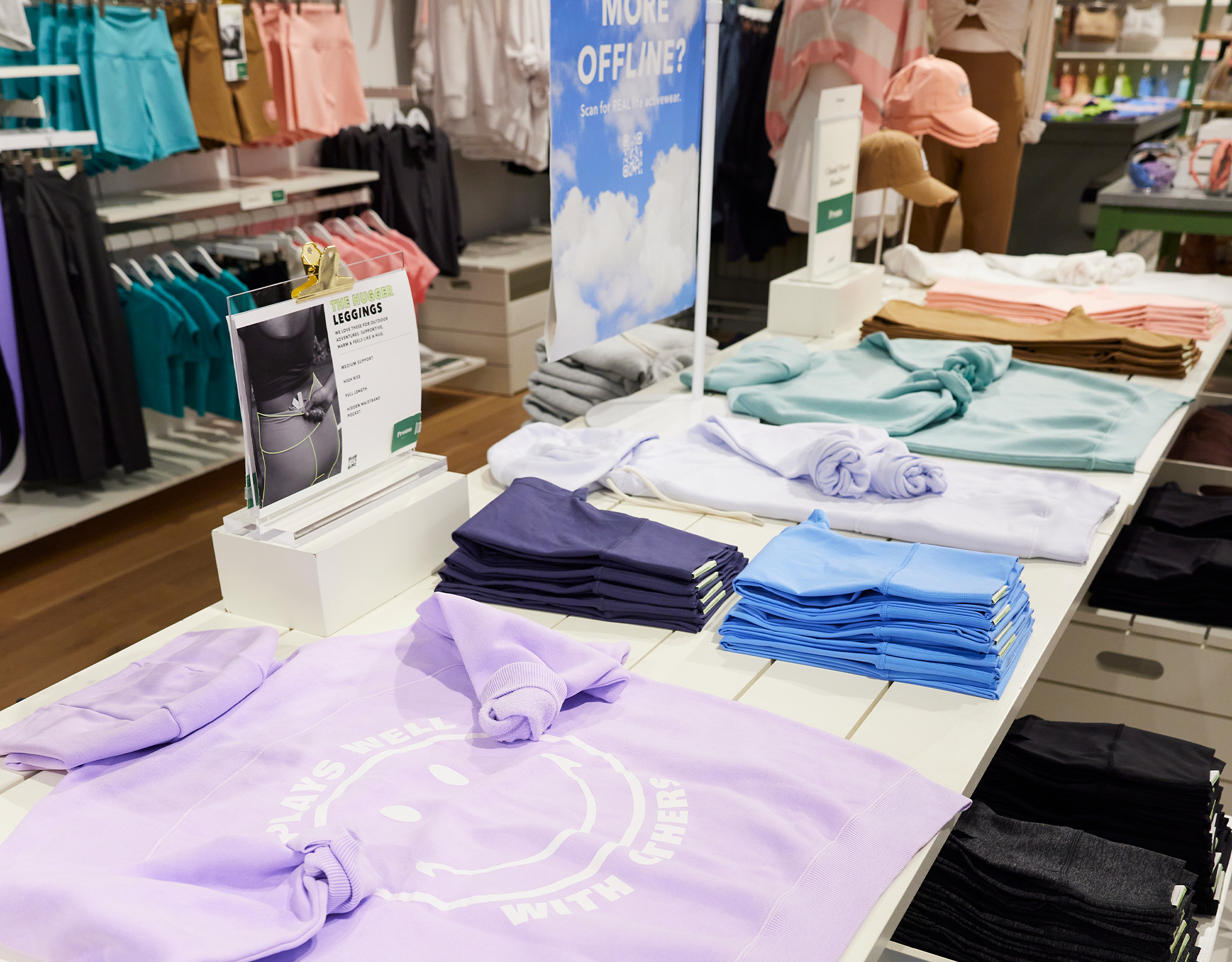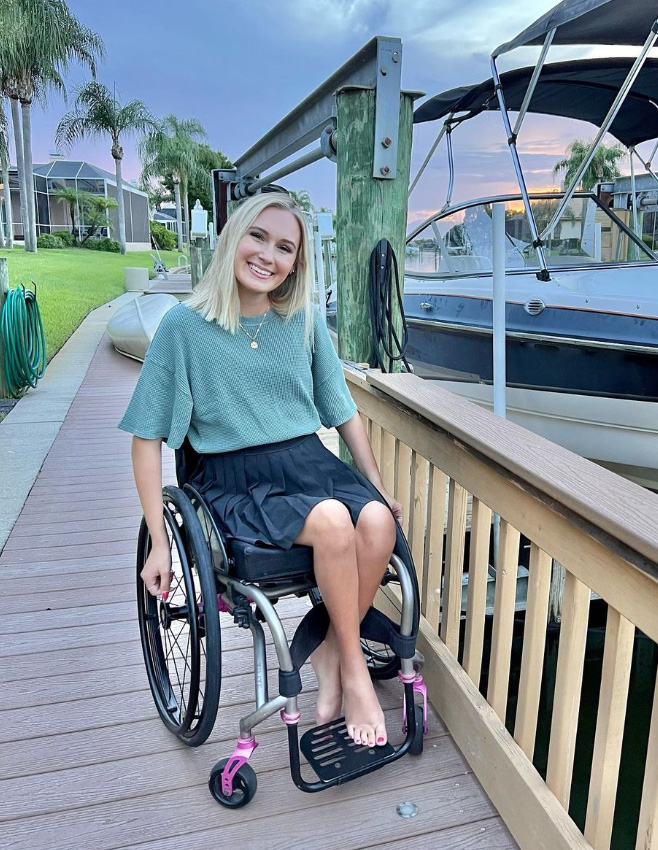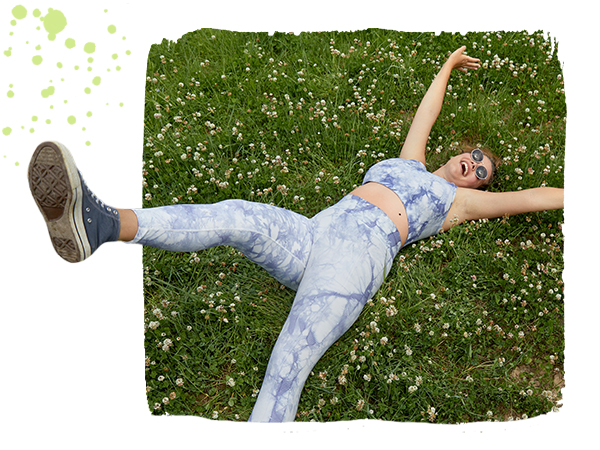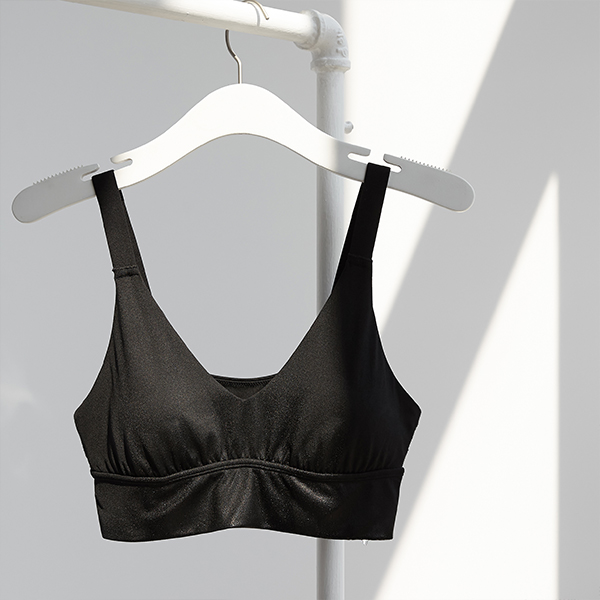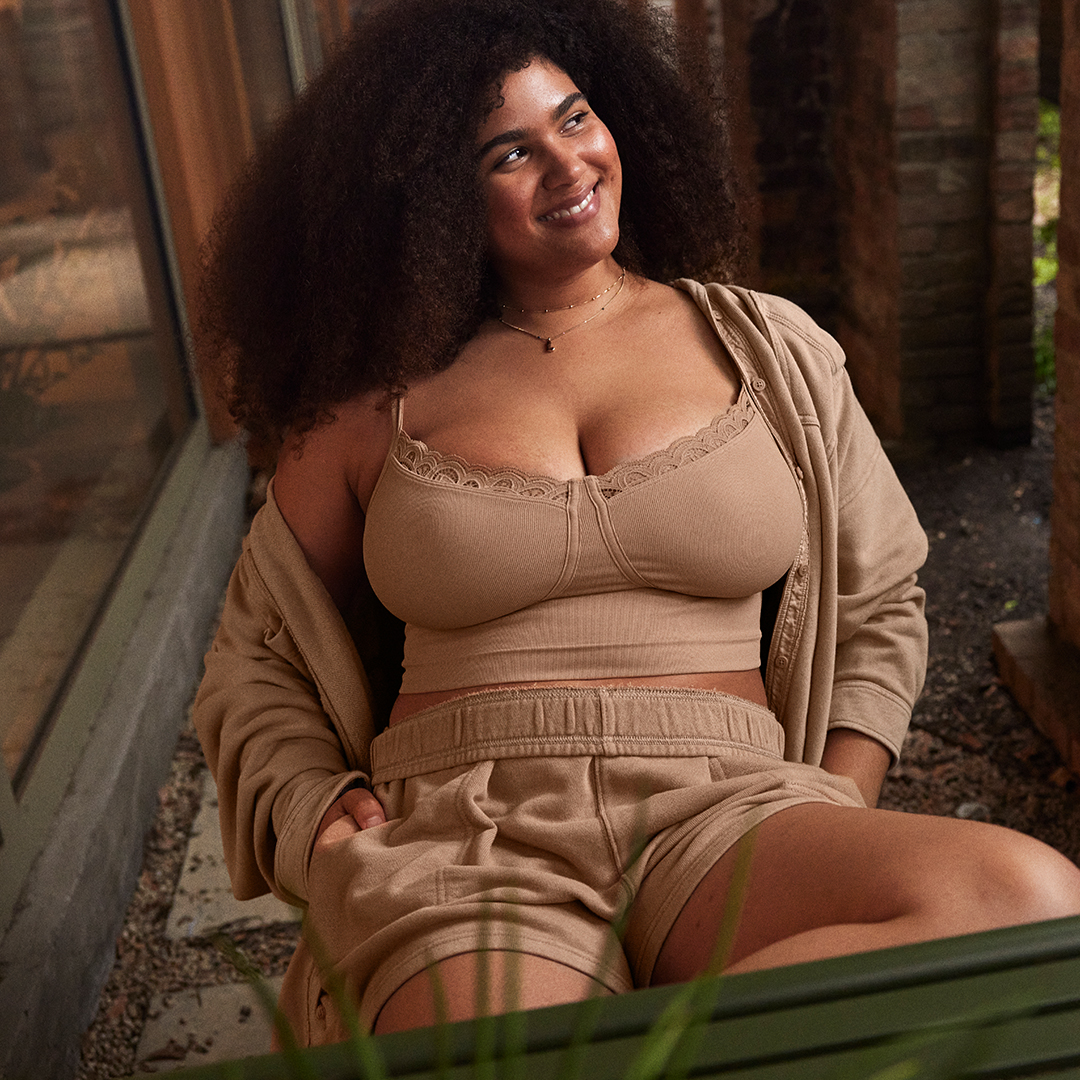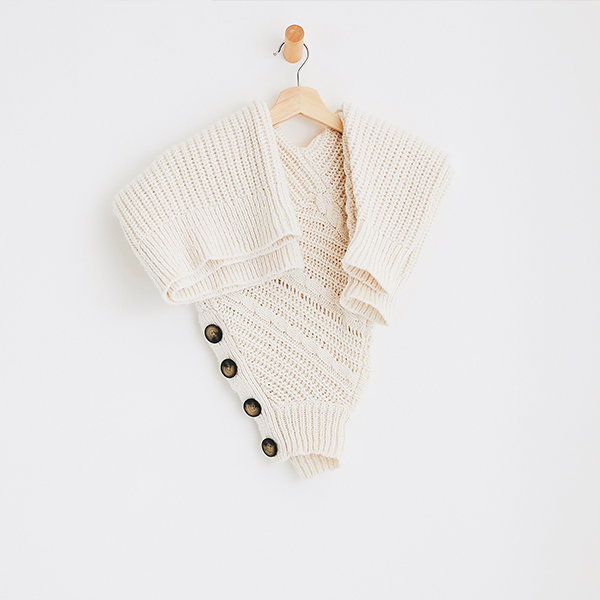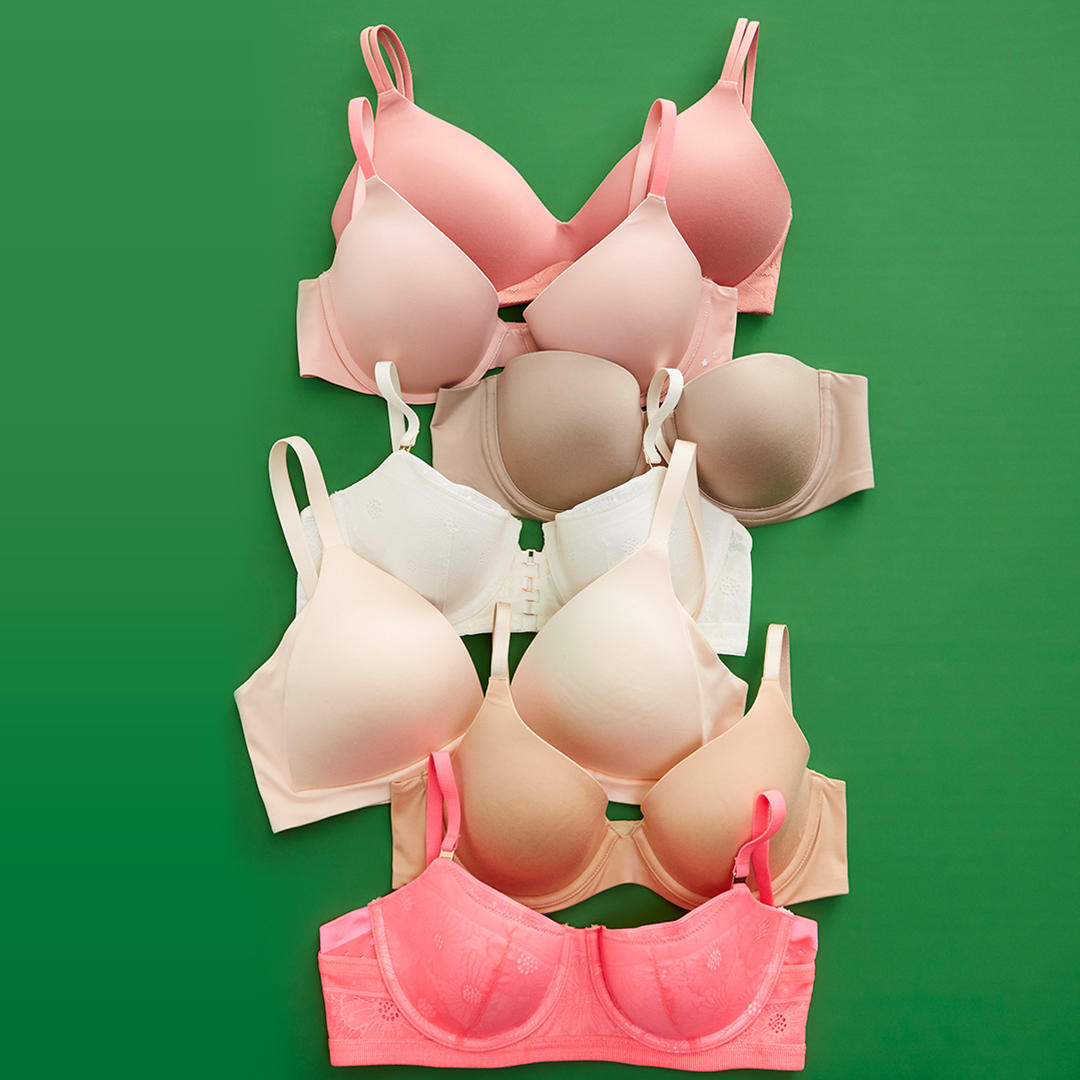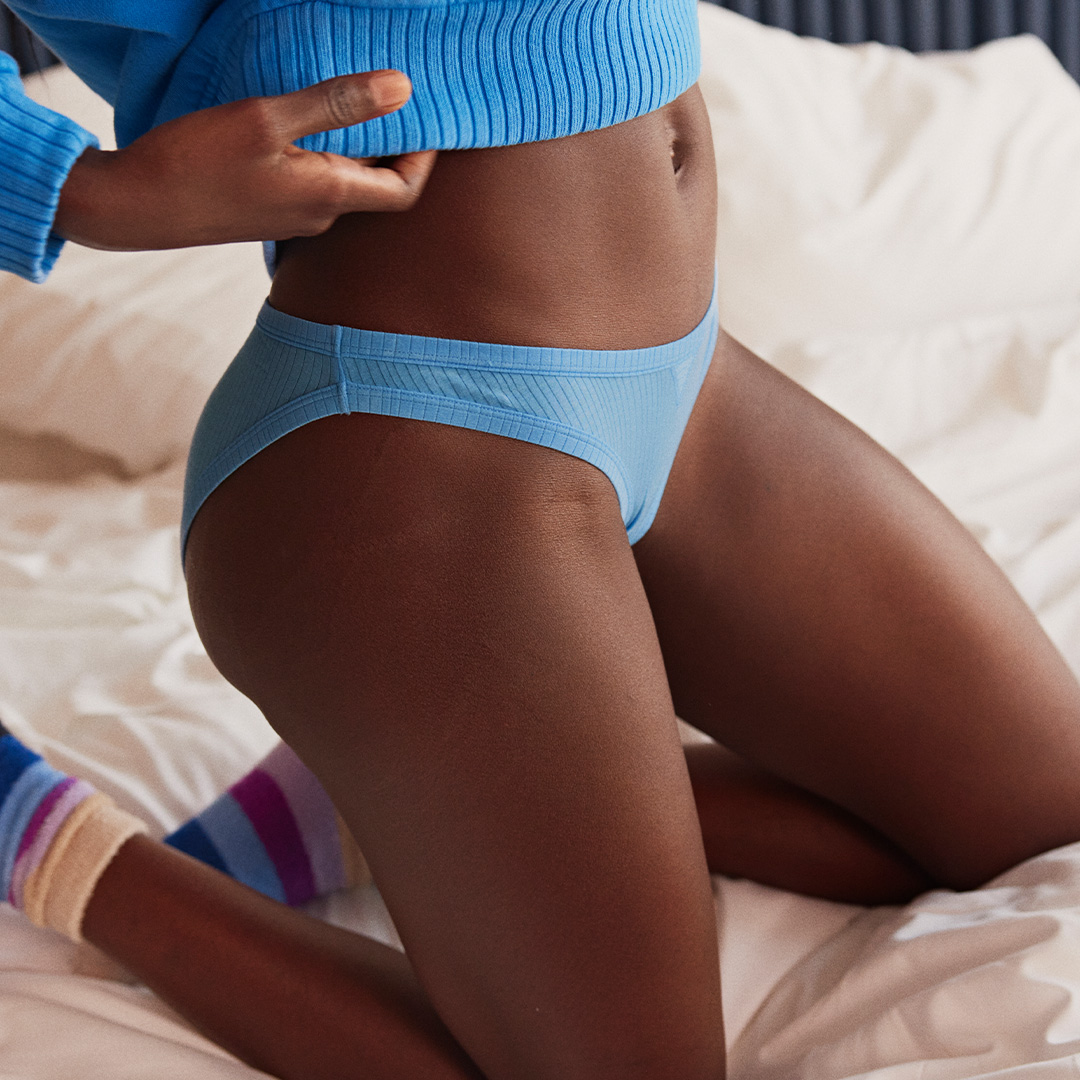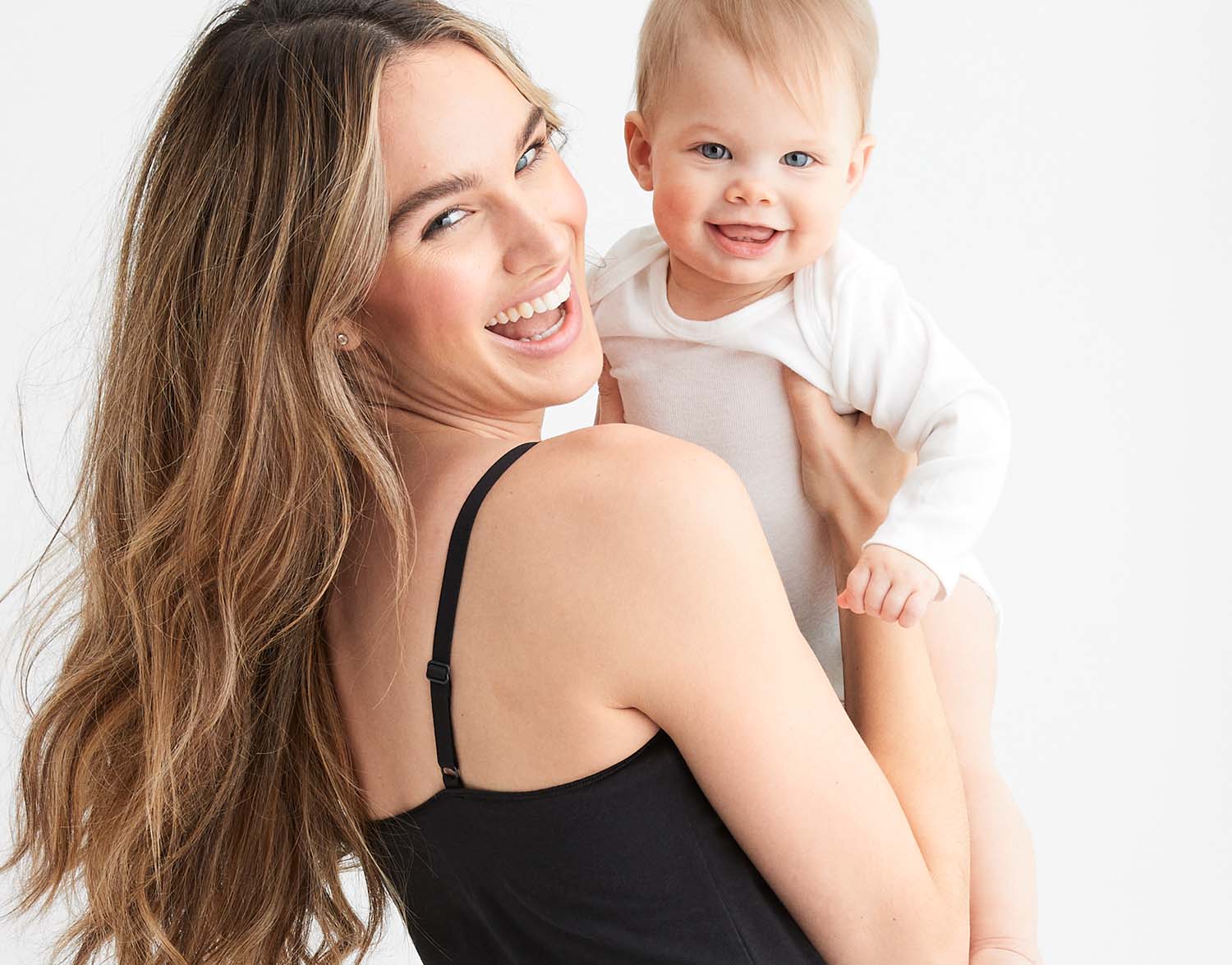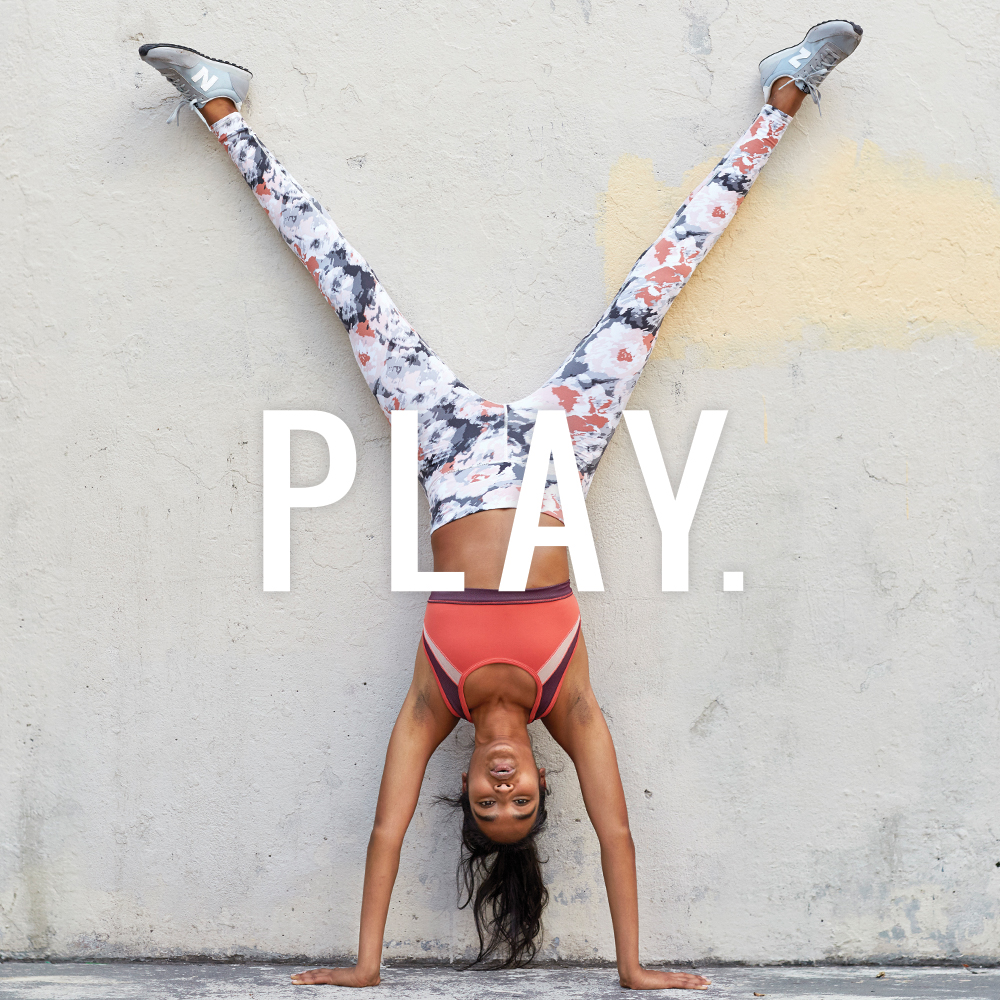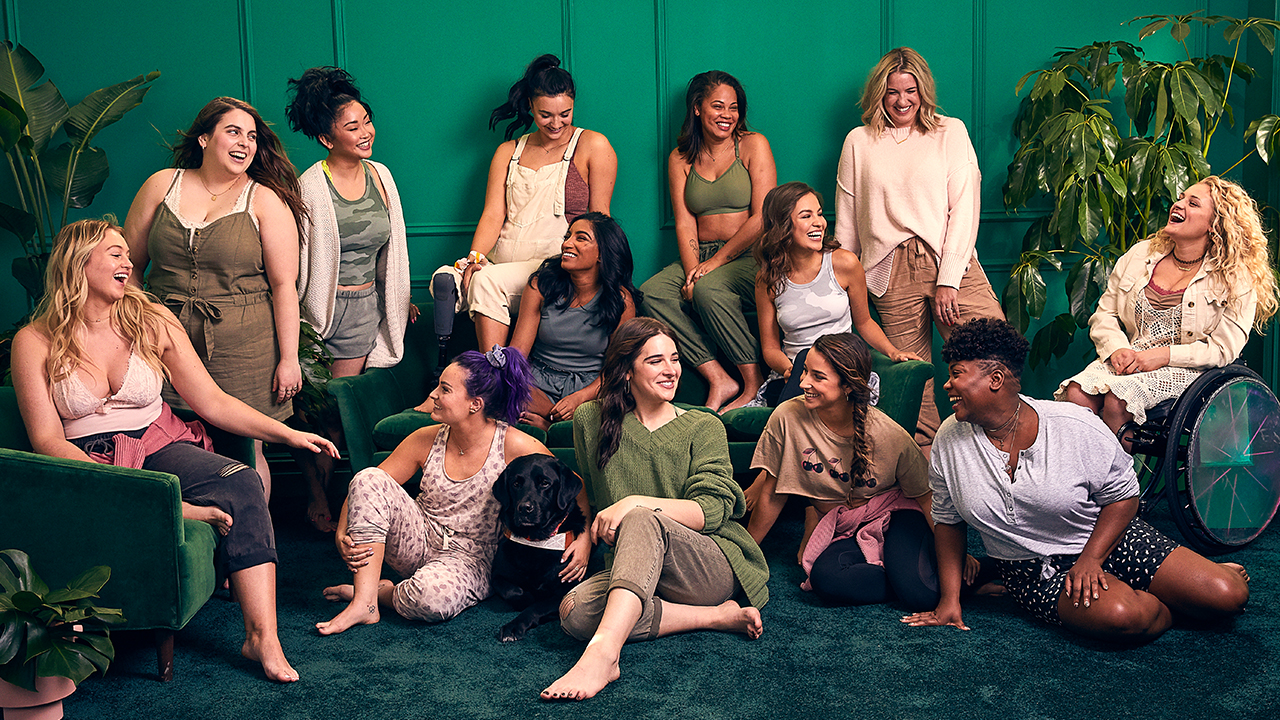Erin Drischler founded
The Garment Project, a non-profit that aims to empower women recovering from eating disorders by providing them with new, size-less clothing, individualized for their healthy bodies and lifestyles. We got to know Erin and the story behind her incredible non-profit—read on for more.
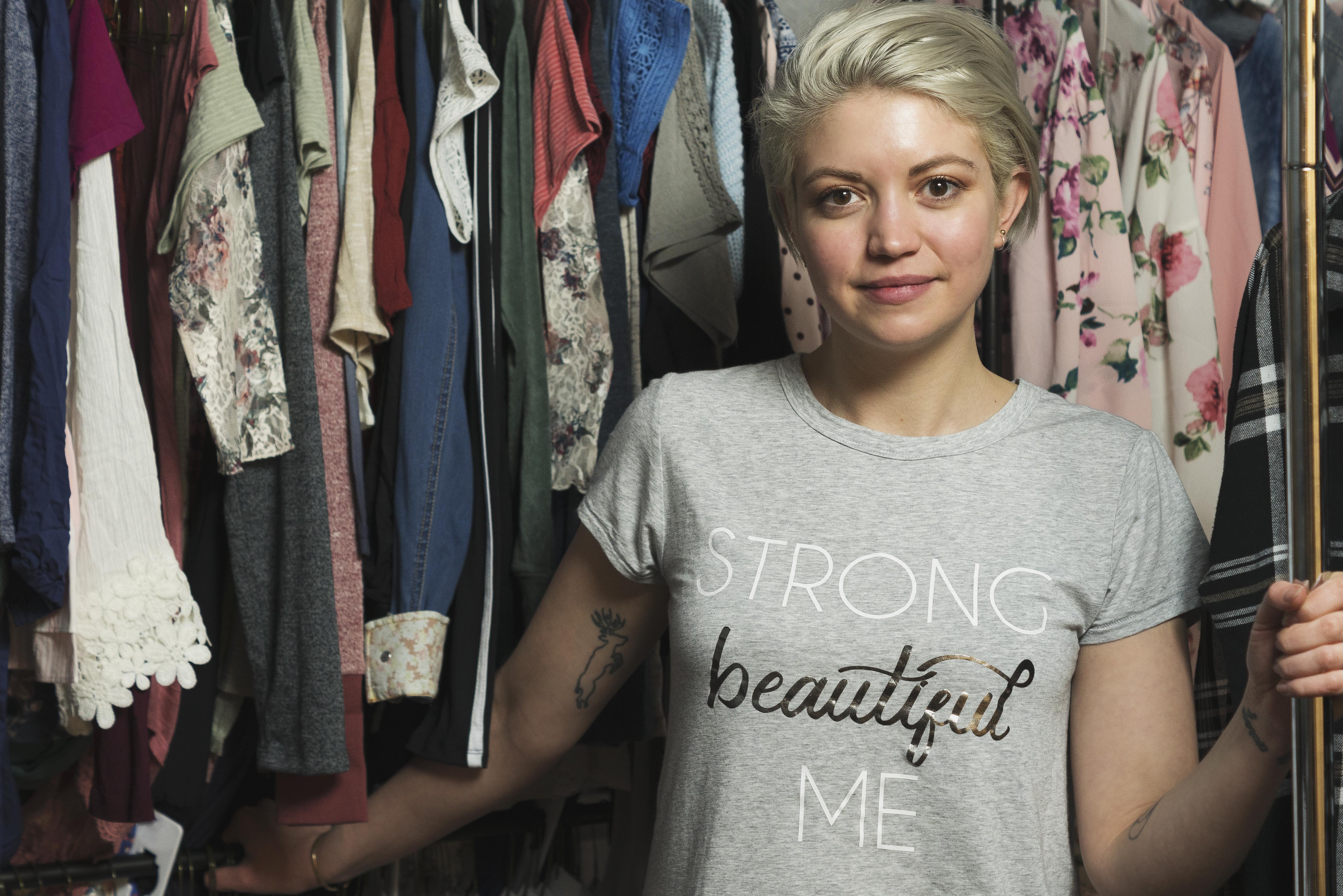 What inspired you to start The Garment Project?
What inspired you to start The Garment Project?
I wanted to start telling a different story. There were so many years where I felt stuck in a loop as the ‘sick girl’. I decided that I want to be a voice for those who feel that same hopelessness. For me, clothing and sizing was a huge part of my eating disorder recovery. Returning home from treatment to a closet full of clothes that didn’t fit my body or soul is a struggle that not many in recovery think of prior to it staring them in the face for the first time. Between my fiancé, Jordan, and myself, our careers, hobbies, and talents seemed to give us the expertise needed to try to make a difference.
We recognized that there needed to be a way for someone to maintain their focus on recovery and not their size, even when finding new clothes. We decided that partnering directly with treatment facilities would give us the information we needed about each candidate Garment works with in a private and healthy way. From there, we needed to give each individual a unique shopping experience. Garment created an online tool that allows us to make a new, personalized shopping page for each candidate containing only items in our inventory that we believe matches both their needs and lifestyle. With the help of hard-working and talented people, we believe Garment will change the recovery process and a lot of lives along the way.
Can you tell us a bit more about the power sizing in clothing can have over women and what they can do to overcome it?
Each time I went through treatment, I would learn new skills or bits of information that would improve some of my behaviors and way of thinking. I would usually leave with a feeling of confidence and that I had worked hard to make important changes in my lifestyle. Yet I would find myself in the same place: back at home, day one of no longer having the security of an inpatient treatment team, trying to get ready for class. I was alone in my room staring at a closet full of clothes that no longer fit my body or recovered lifestyle. It was a terrible feeling.
For a long time I used clothes to fuel my eating disorder. It isn’t uncommon to use clothing sizes as benchmarks. I kept and used my old clothes as a means of body checking, or seeing if weight had been gained or not. After several cycles through the treatment loop, I had been convinced to throw away my scale. My eating disorder didn’t need a scale anymore because I had my ‘sick clothes’. I remember one dress in particular that would reveal my current weight based on how it fit. I didn’t have the financial stability or even the courage to box everything up and start over.
Clothing and fashion are personal and powerful ways to express yourself. It is exciting and the easiest way to express your individuality. I was missing the thing I used to love about getting dressed each day. I wanted to be able to pick my outfit based on my mood or whatever side of my personality was stronger that morning, but I was stuck with a wardrobe that had so many negative associations attached to it that I couldn’t feel confident about anything that I had to choose from.
What’s next for The Garment Project?
We are focused on bettering our service and expanding our reach. This year, we are going to be working hard to spread our message and let people know that we’re a resource for people who have done amazing work for themselves and are learning how to lead a healthier life. Of course, Garment is always learning and growing too. It’s a priority for us to be able to expand our service to men and hopefully we’ll make significant progress on that this year as well.
What makes you #AerieREAL?
It took a few years of practice and slips, but I have a completely new relationship with food, my body, and myself. My eating disordered thoughts once consumed my life, paralyzing me from living a life I was proud of. I am three years into recovery and I still feel pride and excitement when I catch myself in control. I eat when I’m hungry and until I am full, and I always order exactly what I want. When I look at a photo of myself, I no longer examine every dimple or imperfection. I am able to see the happiness on my face because that’s what is most important to me now. I learned how to be more patient with people I care about, and forgive others when they might not have met my expectations. The food finally came second to the relationships, which was one of the most important steps in accepting my recovery.
Living this recovered life had not only led me to accept my body and soul, but truly love and embrace what I have to offer. I’m proud of my recovery and the messy, motivating experiences I went through. It is important to us that we be champions of recovery and show those that are struggling how beautiful recovered life can be.
Want to learn more about The Garment Project? Check out their website
here.
 What inspired you to start The Garment Project?
I wanted to start telling a different story. There were so many years where I felt stuck in a loop as the ‘sick girl’. I decided that I want to be a voice for those who feel that same hopelessness. For me, clothing and sizing was a huge part of my eating disorder recovery. Returning home from treatment to a closet full of clothes that didn’t fit my body or soul is a struggle that not many in recovery think of prior to it staring them in the face for the first time. Between my fiancé, Jordan, and myself, our careers, hobbies, and talents seemed to give us the expertise needed to try to make a difference.
We recognized that there needed to be a way for someone to maintain their focus on recovery and not their size, even when finding new clothes. We decided that partnering directly with treatment facilities would give us the information we needed about each candidate Garment works with in a private and healthy way. From there, we needed to give each individual a unique shopping experience. Garment created an online tool that allows us to make a new, personalized shopping page for each candidate containing only items in our inventory that we believe matches both their needs and lifestyle. With the help of hard-working and talented people, we believe Garment will change the recovery process and a lot of lives along the way.
Can you tell us a bit more about the power sizing in clothing can have over women and what they can do to overcome it?
Each time I went through treatment, I would learn new skills or bits of information that would improve some of my behaviors and way of thinking. I would usually leave with a feeling of confidence and that I had worked hard to make important changes in my lifestyle. Yet I would find myself in the same place: back at home, day one of no longer having the security of an inpatient treatment team, trying to get ready for class. I was alone in my room staring at a closet full of clothes that no longer fit my body or recovered lifestyle. It was a terrible feeling.
For a long time I used clothes to fuel my eating disorder. It isn’t uncommon to use clothing sizes as benchmarks. I kept and used my old clothes as a means of body checking, or seeing if weight had been gained or not. After several cycles through the treatment loop, I had been convinced to throw away my scale. My eating disorder didn’t need a scale anymore because I had my ‘sick clothes’. I remember one dress in particular that would reveal my current weight based on how it fit. I didn’t have the financial stability or even the courage to box everything up and start over.
Clothing and fashion are personal and powerful ways to express yourself. It is exciting and the easiest way to express your individuality. I was missing the thing I used to love about getting dressed each day. I wanted to be able to pick my outfit based on my mood or whatever side of my personality was stronger that morning, but I was stuck with a wardrobe that had so many negative associations attached to it that I couldn’t feel confident about anything that I had to choose from.
What’s next for The Garment Project?
We are focused on bettering our service and expanding our reach. This year, we are going to be working hard to spread our message and let people know that we’re a resource for people who have done amazing work for themselves and are learning how to lead a healthier life. Of course, Garment is always learning and growing too. It’s a priority for us to be able to expand our service to men and hopefully we’ll make significant progress on that this year as well.
What makes you #AerieREAL?
It took a few years of practice and slips, but I have a completely new relationship with food, my body, and myself. My eating disordered thoughts once consumed my life, paralyzing me from living a life I was proud of. I am three years into recovery and I still feel pride and excitement when I catch myself in control. I eat when I’m hungry and until I am full, and I always order exactly what I want. When I look at a photo of myself, I no longer examine every dimple or imperfection. I am able to see the happiness on my face because that’s what is most important to me now. I learned how to be more patient with people I care about, and forgive others when they might not have met my expectations. The food finally came second to the relationships, which was one of the most important steps in accepting my recovery.
Living this recovered life had not only led me to accept my body and soul, but truly love and embrace what I have to offer. I’m proud of my recovery and the messy, motivating experiences I went through. It is important to us that we be champions of recovery and show those that are struggling how beautiful recovered life can be.
Want to learn more about The Garment Project? Check out their website here.
What inspired you to start The Garment Project?
I wanted to start telling a different story. There were so many years where I felt stuck in a loop as the ‘sick girl’. I decided that I want to be a voice for those who feel that same hopelessness. For me, clothing and sizing was a huge part of my eating disorder recovery. Returning home from treatment to a closet full of clothes that didn’t fit my body or soul is a struggle that not many in recovery think of prior to it staring them in the face for the first time. Between my fiancé, Jordan, and myself, our careers, hobbies, and talents seemed to give us the expertise needed to try to make a difference.
We recognized that there needed to be a way for someone to maintain their focus on recovery and not their size, even when finding new clothes. We decided that partnering directly with treatment facilities would give us the information we needed about each candidate Garment works with in a private and healthy way. From there, we needed to give each individual a unique shopping experience. Garment created an online tool that allows us to make a new, personalized shopping page for each candidate containing only items in our inventory that we believe matches both their needs and lifestyle. With the help of hard-working and talented people, we believe Garment will change the recovery process and a lot of lives along the way.
Can you tell us a bit more about the power sizing in clothing can have over women and what they can do to overcome it?
Each time I went through treatment, I would learn new skills or bits of information that would improve some of my behaviors and way of thinking. I would usually leave with a feeling of confidence and that I had worked hard to make important changes in my lifestyle. Yet I would find myself in the same place: back at home, day one of no longer having the security of an inpatient treatment team, trying to get ready for class. I was alone in my room staring at a closet full of clothes that no longer fit my body or recovered lifestyle. It was a terrible feeling.
For a long time I used clothes to fuel my eating disorder. It isn’t uncommon to use clothing sizes as benchmarks. I kept and used my old clothes as a means of body checking, or seeing if weight had been gained or not. After several cycles through the treatment loop, I had been convinced to throw away my scale. My eating disorder didn’t need a scale anymore because I had my ‘sick clothes’. I remember one dress in particular that would reveal my current weight based on how it fit. I didn’t have the financial stability or even the courage to box everything up and start over.
Clothing and fashion are personal and powerful ways to express yourself. It is exciting and the easiest way to express your individuality. I was missing the thing I used to love about getting dressed each day. I wanted to be able to pick my outfit based on my mood or whatever side of my personality was stronger that morning, but I was stuck with a wardrobe that had so many negative associations attached to it that I couldn’t feel confident about anything that I had to choose from.
What’s next for The Garment Project?
We are focused on bettering our service and expanding our reach. This year, we are going to be working hard to spread our message and let people know that we’re a resource for people who have done amazing work for themselves and are learning how to lead a healthier life. Of course, Garment is always learning and growing too. It’s a priority for us to be able to expand our service to men and hopefully we’ll make significant progress on that this year as well.
What makes you #AerieREAL?
It took a few years of practice and slips, but I have a completely new relationship with food, my body, and myself. My eating disordered thoughts once consumed my life, paralyzing me from living a life I was proud of. I am three years into recovery and I still feel pride and excitement when I catch myself in control. I eat when I’m hungry and until I am full, and I always order exactly what I want. When I look at a photo of myself, I no longer examine every dimple or imperfection. I am able to see the happiness on my face because that’s what is most important to me now. I learned how to be more patient with people I care about, and forgive others when they might not have met my expectations. The food finally came second to the relationships, which was one of the most important steps in accepting my recovery.
Living this recovered life had not only led me to accept my body and soul, but truly love and embrace what I have to offer. I’m proud of my recovery and the messy, motivating experiences I went through. It is important to us that we be champions of recovery and show those that are struggling how beautiful recovered life can be.
Want to learn more about The Garment Project? Check out their website here.
 What inspired you to start The Garment Project?
I wanted to start telling a different story. There were so many years where I felt stuck in a loop as the ‘sick girl’. I decided that I want to be a voice for those who feel that same hopelessness. For me, clothing and sizing was a huge part of my eating disorder recovery. Returning home from treatment to a closet full of clothes that didn’t fit my body or soul is a struggle that not many in recovery think of prior to it staring them in the face for the first time. Between my fiancé, Jordan, and myself, our careers, hobbies, and talents seemed to give us the expertise needed to try to make a difference.
We recognized that there needed to be a way for someone to maintain their focus on recovery and not their size, even when finding new clothes. We decided that partnering directly with treatment facilities would give us the information we needed about each candidate Garment works with in a private and healthy way. From there, we needed to give each individual a unique shopping experience. Garment created an online tool that allows us to make a new, personalized shopping page for each candidate containing only items in our inventory that we believe matches both their needs and lifestyle. With the help of hard-working and talented people, we believe Garment will change the recovery process and a lot of lives along the way.
Can you tell us a bit more about the power sizing in clothing can have over women and what they can do to overcome it?
Each time I went through treatment, I would learn new skills or bits of information that would improve some of my behaviors and way of thinking. I would usually leave with a feeling of confidence and that I had worked hard to make important changes in my lifestyle. Yet I would find myself in the same place: back at home, day one of no longer having the security of an inpatient treatment team, trying to get ready for class. I was alone in my room staring at a closet full of clothes that no longer fit my body or recovered lifestyle. It was a terrible feeling.
For a long time I used clothes to fuel my eating disorder. It isn’t uncommon to use clothing sizes as benchmarks. I kept and used my old clothes as a means of body checking, or seeing if weight had been gained or not. After several cycles through the treatment loop, I had been convinced to throw away my scale. My eating disorder didn’t need a scale anymore because I had my ‘sick clothes’. I remember one dress in particular that would reveal my current weight based on how it fit. I didn’t have the financial stability or even the courage to box everything up and start over.
Clothing and fashion are personal and powerful ways to express yourself. It is exciting and the easiest way to express your individuality. I was missing the thing I used to love about getting dressed each day. I wanted to be able to pick my outfit based on my mood or whatever side of my personality was stronger that morning, but I was stuck with a wardrobe that had so many negative associations attached to it that I couldn’t feel confident about anything that I had to choose from.
What’s next for The Garment Project?
We are focused on bettering our service and expanding our reach. This year, we are going to be working hard to spread our message and let people know that we’re a resource for people who have done amazing work for themselves and are learning how to lead a healthier life. Of course, Garment is always learning and growing too. It’s a priority for us to be able to expand our service to men and hopefully we’ll make significant progress on that this year as well.
What makes you #AerieREAL?
It took a few years of practice and slips, but I have a completely new relationship with food, my body, and myself. My eating disordered thoughts once consumed my life, paralyzing me from living a life I was proud of. I am three years into recovery and I still feel pride and excitement when I catch myself in control. I eat when I’m hungry and until I am full, and I always order exactly what I want. When I look at a photo of myself, I no longer examine every dimple or imperfection. I am able to see the happiness on my face because that’s what is most important to me now. I learned how to be more patient with people I care about, and forgive others when they might not have met my expectations. The food finally came second to the relationships, which was one of the most important steps in accepting my recovery.
Living this recovered life had not only led me to accept my body and soul, but truly love and embrace what I have to offer. I’m proud of my recovery and the messy, motivating experiences I went through. It is important to us that we be champions of recovery and show those that are struggling how beautiful recovered life can be.
Want to learn more about The Garment Project? Check out their website here.
What inspired you to start The Garment Project?
I wanted to start telling a different story. There were so many years where I felt stuck in a loop as the ‘sick girl’. I decided that I want to be a voice for those who feel that same hopelessness. For me, clothing and sizing was a huge part of my eating disorder recovery. Returning home from treatment to a closet full of clothes that didn’t fit my body or soul is a struggle that not many in recovery think of prior to it staring them in the face for the first time. Between my fiancé, Jordan, and myself, our careers, hobbies, and talents seemed to give us the expertise needed to try to make a difference.
We recognized that there needed to be a way for someone to maintain their focus on recovery and not their size, even when finding new clothes. We decided that partnering directly with treatment facilities would give us the information we needed about each candidate Garment works with in a private and healthy way. From there, we needed to give each individual a unique shopping experience. Garment created an online tool that allows us to make a new, personalized shopping page for each candidate containing only items in our inventory that we believe matches both their needs and lifestyle. With the help of hard-working and talented people, we believe Garment will change the recovery process and a lot of lives along the way.
Can you tell us a bit more about the power sizing in clothing can have over women and what they can do to overcome it?
Each time I went through treatment, I would learn new skills or bits of information that would improve some of my behaviors and way of thinking. I would usually leave with a feeling of confidence and that I had worked hard to make important changes in my lifestyle. Yet I would find myself in the same place: back at home, day one of no longer having the security of an inpatient treatment team, trying to get ready for class. I was alone in my room staring at a closet full of clothes that no longer fit my body or recovered lifestyle. It was a terrible feeling.
For a long time I used clothes to fuel my eating disorder. It isn’t uncommon to use clothing sizes as benchmarks. I kept and used my old clothes as a means of body checking, or seeing if weight had been gained or not. After several cycles through the treatment loop, I had been convinced to throw away my scale. My eating disorder didn’t need a scale anymore because I had my ‘sick clothes’. I remember one dress in particular that would reveal my current weight based on how it fit. I didn’t have the financial stability or even the courage to box everything up and start over.
Clothing and fashion are personal and powerful ways to express yourself. It is exciting and the easiest way to express your individuality. I was missing the thing I used to love about getting dressed each day. I wanted to be able to pick my outfit based on my mood or whatever side of my personality was stronger that morning, but I was stuck with a wardrobe that had so many negative associations attached to it that I couldn’t feel confident about anything that I had to choose from.
What’s next for The Garment Project?
We are focused on bettering our service and expanding our reach. This year, we are going to be working hard to spread our message and let people know that we’re a resource for people who have done amazing work for themselves and are learning how to lead a healthier life. Of course, Garment is always learning and growing too. It’s a priority for us to be able to expand our service to men and hopefully we’ll make significant progress on that this year as well.
What makes you #AerieREAL?
It took a few years of practice and slips, but I have a completely new relationship with food, my body, and myself. My eating disordered thoughts once consumed my life, paralyzing me from living a life I was proud of. I am three years into recovery and I still feel pride and excitement when I catch myself in control. I eat when I’m hungry and until I am full, and I always order exactly what I want. When I look at a photo of myself, I no longer examine every dimple or imperfection. I am able to see the happiness on my face because that’s what is most important to me now. I learned how to be more patient with people I care about, and forgive others when they might not have met my expectations. The food finally came second to the relationships, which was one of the most important steps in accepting my recovery.
Living this recovered life had not only led me to accept my body and soul, but truly love and embrace what I have to offer. I’m proud of my recovery and the messy, motivating experiences I went through. It is important to us that we be champions of recovery and show those that are struggling how beautiful recovered life can be.
Want to learn more about The Garment Project? Check out their website here.
